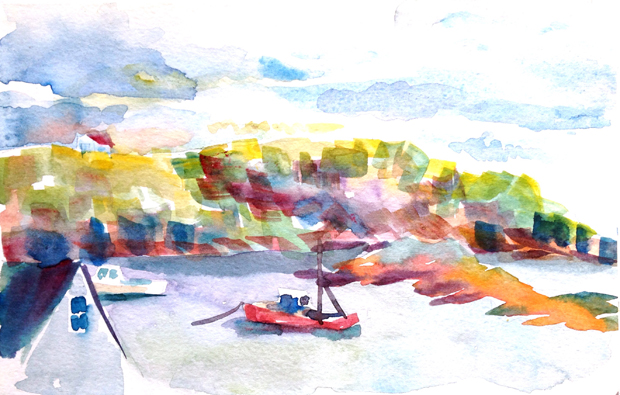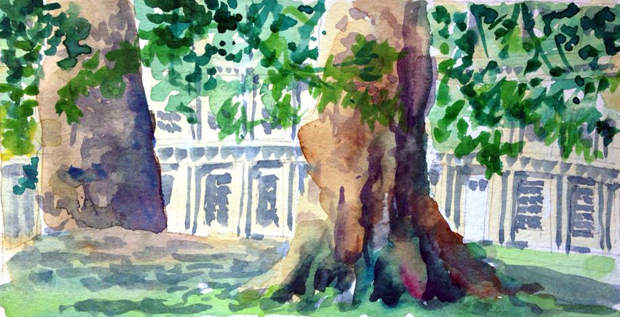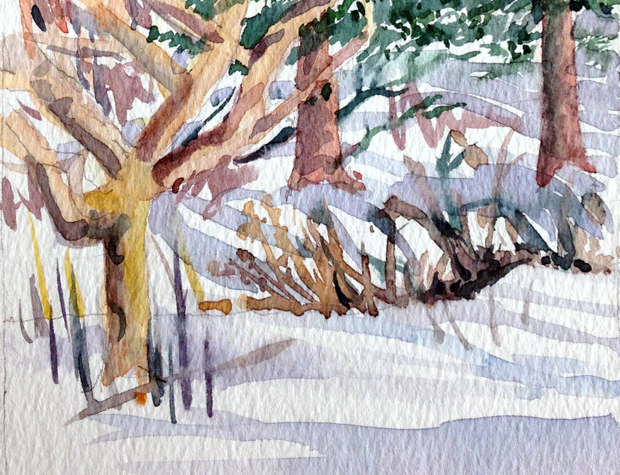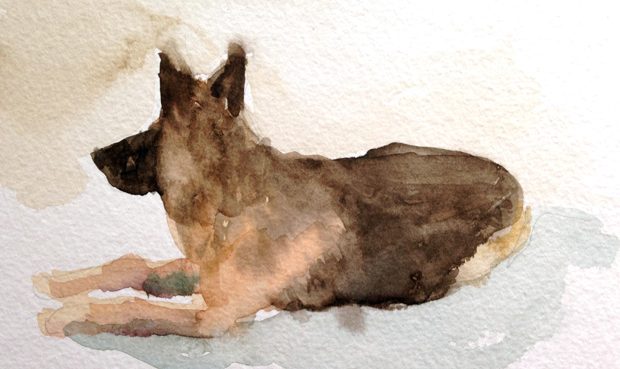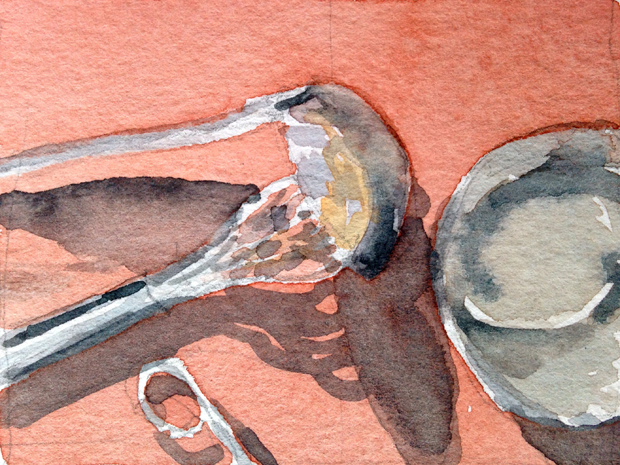All told, we’ve collaborated to offer eleven Restorying retreats over the last two years, with more in the planning stages. They’ve come to have a dynamic balance between structure and improvisation. We are learning as leaders to be present and notice the field, to give ourselves over to what wants to happen next, what the earth is dreaming for us. Within a framework of ritual and ceremony, poetry and mythic time and space, we enter the door that leads to the realm of heart and soul and mystery.
Themes, questions, and insights begin to weave into and through the assembled group from the first gathering. We are getting better at tuning into that and inviting participants to join in the fun of giving ourselves over to what Mystery wants to do with us. It reminds me of what Malcolm Gladwell had to say about improvisation in his book, Blink. Using basketball as an example, he wrote that in practice, the players drill patterns and set-ups relentlessly, and then every game is totally improvisational. The patterns are strung together in completely new ways in every game, every moment. I can guess from the way my son talks about soccer that it’s much the same. Continue reading

